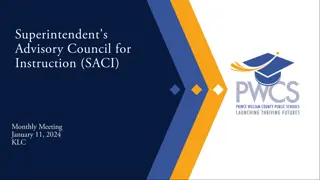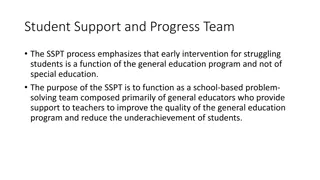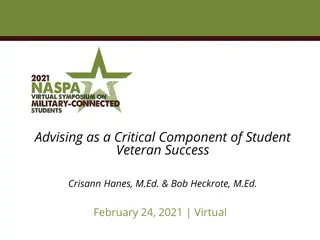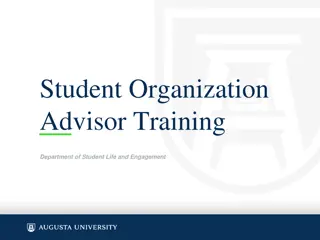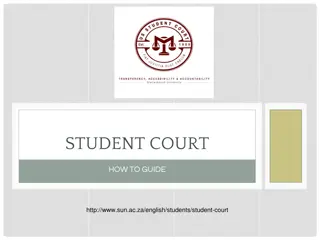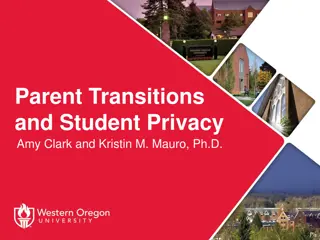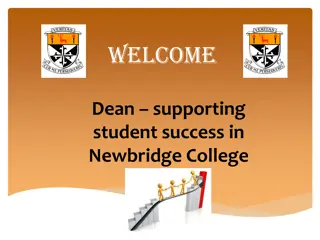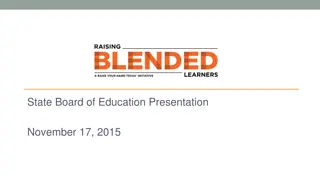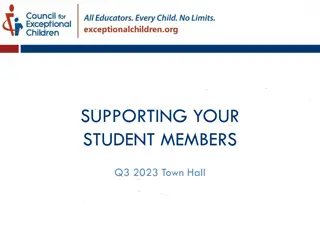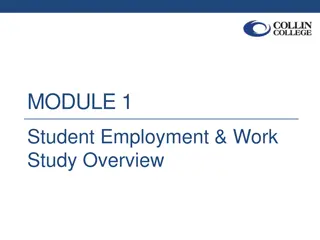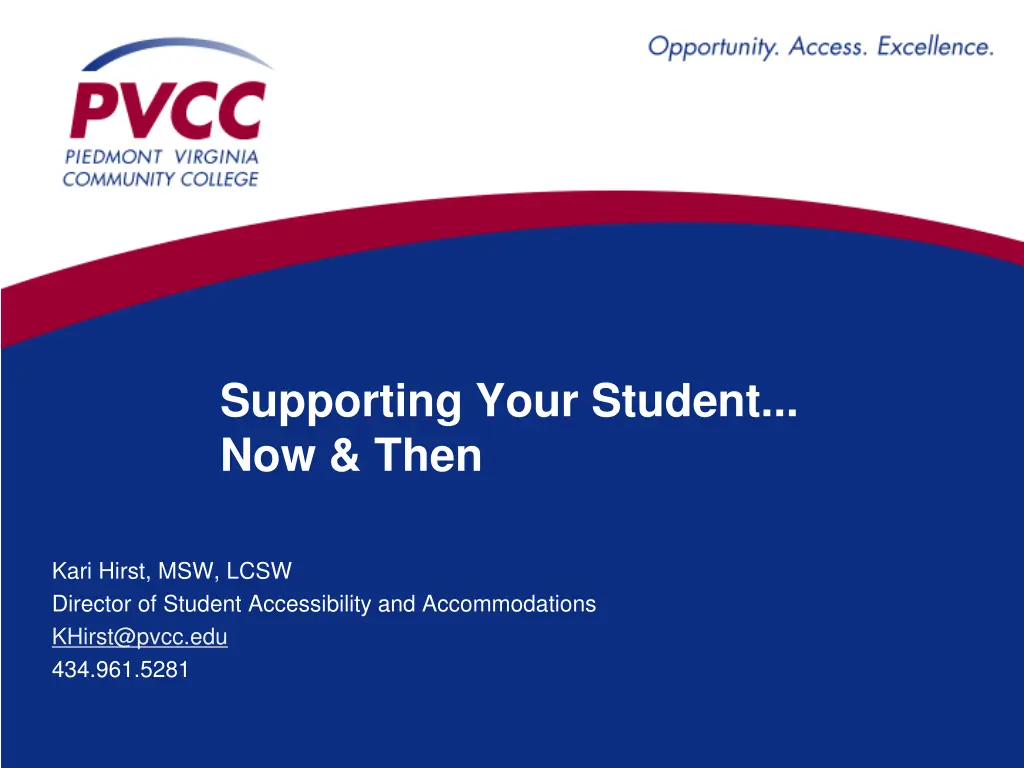
Supporting Your Student: PVCC Programs, Class Options, and College Technology
Explore how Piedmont Virginia Community College (PVCC) supports students with accessibility accommodations, offers diverse educational programs, flexible class options, and emphasizes the use of technology in today's college environment.
Download Presentation

Please find below an Image/Link to download the presentation.
The content on the website is provided AS IS for your information and personal use only. It may not be sold, licensed, or shared on other websites without obtaining consent from the author. If you encounter any issues during the download, it is possible that the publisher has removed the file from their server.
You are allowed to download the files provided on this website for personal or commercial use, subject to the condition that they are used lawfully. All files are the property of their respective owners.
The content on the website is provided AS IS for your information and personal use only. It may not be sold, licensed, or shared on other websites without obtaining consent from the author.
E N D
Presentation Transcript
Supporting Your Student... Now & Then Kari Hirst, MSW, LCSW Director of Student Accessibility and Accommodations KHirst@pvcc.edu 434.961.5281
PVCC Just the Facts Full-time Enrollment is about 2500 students Small Class Sizes usually 15-30 students in a class Affordable - Start with a FAFSA! Tuition + Fees < $160 per Credit (Verus UVA $515+) Tuition Rates Stable for 5+ Years PVCC4U! Guaranteed Transfer Agreements Work Closely with Academic Advisors on Transfer Plans Must get C or better in all classes
Program of Study Associate of Arts Associate of Science General Studies Liberal Arts Time 2 Years (or more) Goal Completion of Degree Transfer and Continue Work Toward a Bachelor s Degree at a 4-year College or University Associate of Applied Science 2 Years (or more) Be Prepared for Direct Entry Into a Career Certificate Career Studies Certificate 1-3 Semesters Improve current job skills, better job placement, advancement opportunities Individual Courses As many as you like Personal enrichment, life- long learning, and resume-building
Class Options In-person, hybrid, online scheduled time, online anytime (!) Day, Evening, and Saturday Classes may meet 1-4 times per week for varied times or online anytime may never have a synchronous session Fall and Spring Semesters Most classes are scheduled for 16 weeks Some classes are scheduled for 12-, 10-, 8-, or 4-weeks Summer Semester Most classes are scheduled for 10-weeks Some classes are scheduled for 5-weeks one start date at beginning of summer semester, one start date halfway through
College in the 2020's Requires daily use of multiple technology platforms Emails from professors, deans, campus engagement, student accessibility & accommodations, alerts Canvas class information, syllabus, assignments, grades, test dates SIS class enrollment, financial aid, demographics Navigate set appointments with campus resources Respondus Lock Down Browser - used for tests offsite SDV 100 Student Development Class Start Here! Learn the campus resources, practice the technology, and hone skills needed for college
College in the 2020's Part 2 Most Common Accommodations Testing Center when extra time, read aloud accommodations, or change of environment is approved Note Taking software based in class or getting professor presentations prior to class access based Audiobooks Resources for All Writing Center all types of writing assignments and all stages of the writing process, virtual/in-person appointments or drop-in Tutoring Center study skills, time management, and class specific (e.g., microbiology or economics 202), appointments or drop-in Career Services Student Financial Resource Center
When your students are in high school... The parent/guardian, school personnel, case managers, guidance counselors, and teachers advocate or coordinate services with an IEP or 504 Plan The public school system completed professional evaluations or testing to show the student's eligibility for services possibly every 3 years or as needed Case managers set meetings every year to review student progress, goals, and school supports IDEA entitles every student to receive identified supports for success
When your students come to college... They decide to seek out services and they will be advocating for their needs They will need to provide documentation of current diagnoses, barriers, and recommendations. This can include IEP, 504 Plan, Evaluations, Medical or Mental Health Treatment Records, and/or PVCC Verification Form They will need to reach out to the disability services or accessibility office to set initial appointment and request accommodations every semester They may be eligible for reasonable accommodations for equal access under ADA They will coordinate with professor e.g., testing changes
High School In school from 9am-4pm College Class times vary may be 1- 3x/week or no meetings at all More independent learning readings, practice, student can create study guides Fewer tests that cover large amounts of material. Tests may include previously learned material Open campus, roam as you please, personal responsibility Class Time Resource class or minimal homework, Study guide provided More frequent tests on smaller chunks of material. A mix of homework, tests, papers, class participation, etc. Closed campus, students expected in class, parents/guardians contacted Study Time Tests/Grading Personal Freedom
Portrait of a Successful College Student... Independent Learner Critical Thinking or Analyzing Motivated Resourceful Resilient Good Self-Advocate Strong Time Management Skills or Tools Connected Supported
Things Students Should Be Doing Now Independently Monitoring Deadlines/Dates Blocking off time to study, to read, and to do classwork and sticking to it! Attending or Facilitating IEP meetings Explaining Symptoms Experienced, Barriers in Academic Settings, and Accommodation Needs Learning preferences, study needs, and notetaking strategies Connecting with DARS Vocational Guidance 434.296.5621
A parent or support person for a student can Be available to listen and to encourage Give their student the space to problem- solve as an adult learner Encourage their student to use resources and to connect with Student Accessibility & Accommodations while respecting their choices and self-determination



